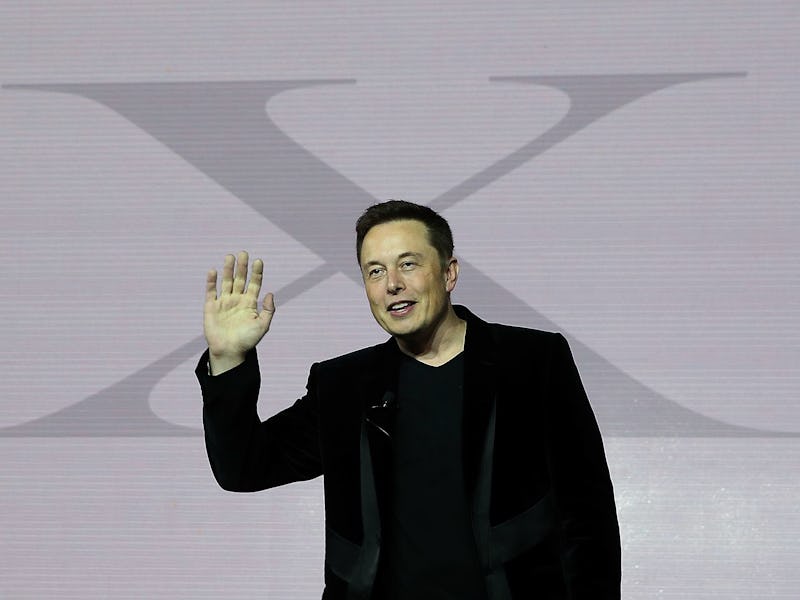Congress Wonders What'll Happen When the Robots Take Our Jobs
“If a whole occupation is suddenly displaced, what do we do?”

In the past decade, artificial intelligence has made enormous leaps, molding our autonomous future that didn’t seem possible just a few years ago. Autonomous vehicles from Uber and Tesla seem poised to revolutionize transportation, service robots are replacing store clerks, and nearly every American has a personal assistant right in their pocket.
With these advances come sizable disadvantages for the economy, a matter that a Senate committee addressed on Wednesday.
“There’s another part about A.I., and that is the replacement of jobs and we’ve got to prepare for that,” said Senator Bill Nelson, a Democrat from Florida, at a subcommittee hearing on the future of A.I. “In an interview with CNBC, [Tesla founder Elon Musk] predicted — predicted! — robots could eventually take over many jobs away from folks so that they would have to depend on the government in order to have a living.”
“If a whole occupation is suddenly displaced, what do we do?”
It was Nelson’s question that was at the top of the agenda of the “The Dawn of Artificial Intelligence,” a hearing held by the U.S. Senate Subcommittee on Space, Science, and Competitiveness on Wednesday. While the White House has demonstrated an increasing interest in A.I., starting with its Frontiers Conference in October, this was the first hearing by a Congressional Committee on the matter.
“We have to think critically about the steps we can take today, and in the years to come, to make sure American workers are not left behind,” said Senator Gary Peters, a Michigan Democrat.
Robots handle parts for Fiat Chrysler Automobiles at the FCA Sterling Stamping Plant August in Sterling Heights, Michigan.
In that interview mentioned by Nelson, Tesla CEO Elon Musk described how the introduction of self-driving semi-trucks by Tesla could eliminate jobs for humans in the trucking industry. And while Nelson emphasized that Musk’s claim was a prediction, it’s rooted in hard numbers. According to The Los Angeles Times, 1.7 million Americans who have trucking jobs could be looking for work when autonomous trucks are put into use. In fact, it’s estimated that by 2020 at least five million American jobs will be replaced by automation.
“We urgently need to prioritize the training and retraining of the U.S. workforce so skills are in line with our needs,” said Dr. Eric Horvitz, Managing Director at the Microsoft Research Lab in his testimony before the committee.
Horvitz is also the interim co-chair of the Partnership on Artificial Intelligence to Benefit People and Society, a collaboration formed this year by technology companies over the ethical questions inherent in A.I.
Despite the looming threat of runaway A.I., the growing technology also presents an opportunity to create a number of new jobs.
A robot assembles Washing Machines at the BSH Bosch Siemens Hausgeraetewerk Nauen consumer appliances factory, the world's third-largest appliance maker, in Nauen, Germany.
“I think it’s interesting we’re all so concerned about there being jobs available and there’s such a gap [in artificial intelligence training],” said Dr. Andrew Moore, Dean of Computer Science at Carnegie Mellon University.
But if the election proved anything, it’s that there’s a strong sentiment amongst those most likely to be out of a job against completely abandoning traditional industry. As outlined in a White House report released in October, automation is likely to have a disproportionate effect on lower-wage earners and runs the risk of creating a greater wage gap between classes.
“We just came through an election where the loss of jobs was a big topic and maybe truck drivers don’t want to be trained to work on a computer so what are we going to do for the future?” Nelson asked.
What About Basic Income?
One option, as Elon Musk has suggested, is that new levels of automation give way to a universal basic income.
And based on the preliminary hearing, the idea isn’t so crazy, at least economically speaking.
“Artificial intelligence also has the potential to contribute to economic growth in both the near- and long-term,” said subcommittee chairman and Texas Senator Ted Cruz, citing an Accenture report that states artificial intelligence is poised to double economic growth by 2035.
While job creation dominated the hearing, expert testimonies also addressed an increased need for privacy security, beating out competing countries like China and Russia in development, and working with the private sector to continue to answer questions of ethics and regulation for the rapidly developing technology.